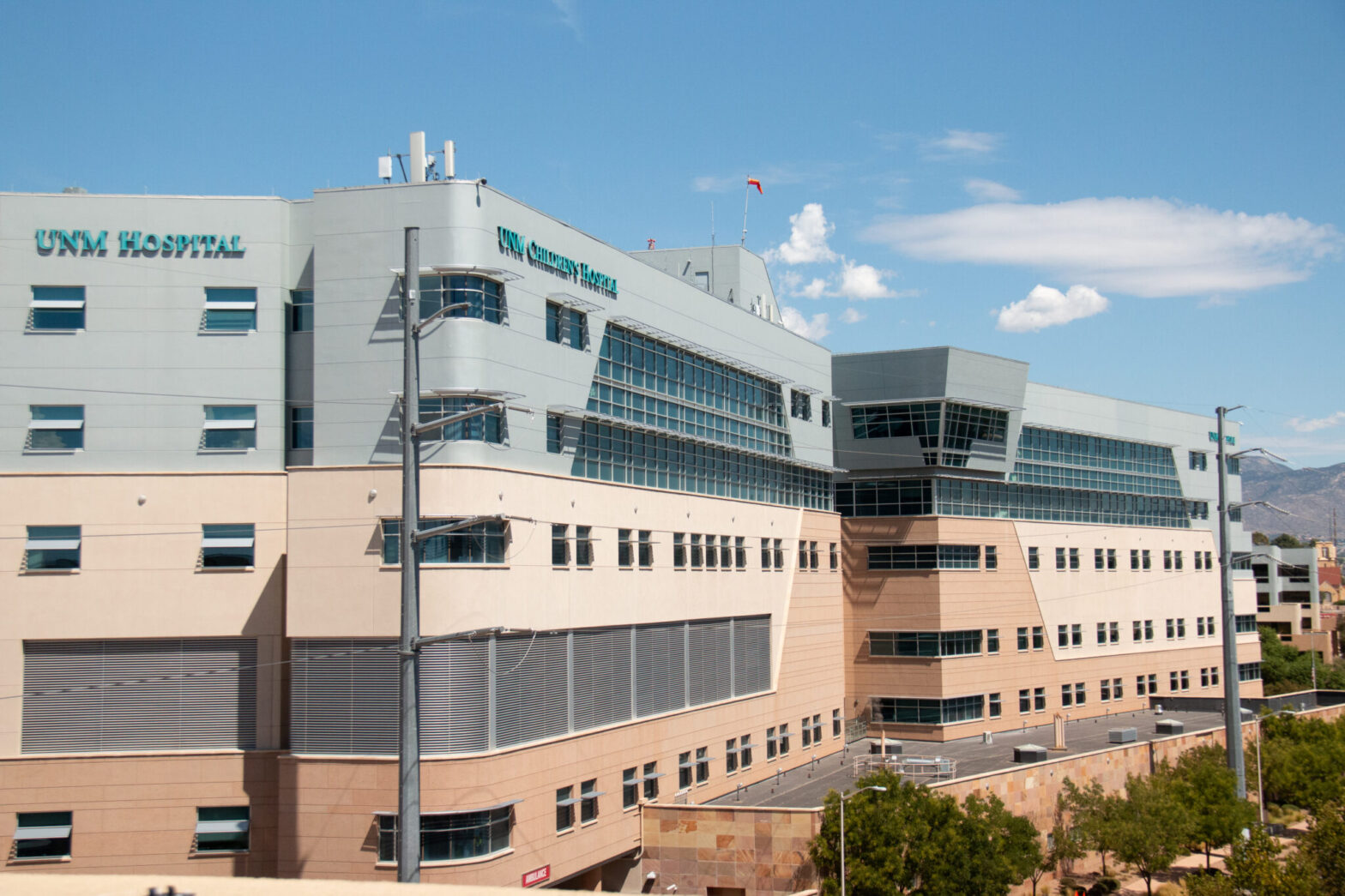Shaun Griswold / Source NM
Unvaccinated people who contract COVID-19 are increasing the amount of patients needing care at New Mexico hospitals amid a shortage of staff and resources. Most New Mexico hospitals are above 100% capacity.
In response, the state Department of Health announced Monday, Oct. 18, that it will allow some hospitals to ration treatment by using the Crisis Standards of Care as guides. These standards are meant to allow health care staff to prioritize people who need care the most, state officials said, and keep up with the rate of COVID-19 cases arriving at New Mexico emergency rooms.
As things stand, hospital beds are spilling into spaces never meant for patient stays, said Jennifer Vosburgh, University of New Mexico Health Sciences Center chief nursing officer. “We have patients who spend their stay in the operating room or in interventional areas such as the cath lab,” she said. “These spaces were never intended for long-term patient care. There are no bathrooms. There are no TVs. There are not normal patient room requirements that patients expect.”
This is not a means of turning away unvaccinated people. Instead, patients who are in the worst shape will be prioritized, said DOH Acting-Secretary Dr. David Scrase.
To qualify for a waiver, a hospital must provide only essential medical procedures.
“Because of COVID, New Mexico hospitals and health care facilities have carried an unmanageable burden,” Scrase said. “Today, the state is offering clarity and support as providers seek to make difficult choices about how to allocate scarce — and precious — health care resources.”
No New Mexico hospital has received the waiver yet this year. They can apply, and Scrase said DOH will review the applications in the next few days.
Scrase said at least more than a dozen health care practitioners are already qualified, because the state of New Mexico implemented this policy when hospitals experienced the same issues during the height of the pandemic in 2020.
One of those places is the University of New Mexico Health Sciences Center.
Vosburgh said her colleagues need this support.
“Unfortunately, the message is the same. As nursing leaders, we are struggling. We are frustrated, and we often find ourselves in a position to make the least bad decision that we can,” she said. “It wears on us, our staff and our patients. Most hospitals never saw a reprieve from the prior surges, and many patients are coming back sicker and more complicated than ever, largely related to a delay in care. This of course is further exacerbated by a reduction in health care resources.”
Scrase said he wanted to emphasize that New Mexico hospitals will not turn away people that need medical care.
“If you’re sick or think you might be, please, call your doctor,” he said.
Unvaccinated people are stressing resources at Vosburgh’s hospital, she said, creating shortages of phlebotomists, and respiratory and physical therapists.
And the perceived lack of concern by the general public doesn’t help, she added. There’s a sense of hopelessness among hospital staff, she said, and a feeling that normalcy will never return.
“All of this is in addition to caring for patients that are sicker than they’ve ever been,” she said. “Ultimately, patients are not getting the care they need and deserve in New Mexico.”
Source New Mexico is part of States Newsroom, a network of news bureaus supported by grants and a coalition of donors as a 501c(3) public charity. Source New Mexico maintains editorial independence. Contact Editor Marisa Demarco for questions: info@sourcenm.com. Follow Source New Mexico on Facebook and Twitter.
